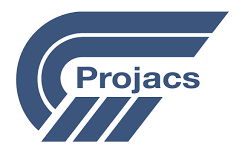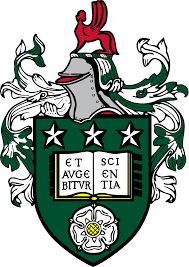
Tactics of Mechanical Installation - HVAC, Elevators, Fire Alarm, Pumps, Isolation Materials, etc.
Course ID: 2507074501077EGI
Course Dates : 07/07/25 Course Duration : 5 Studying Day/s Course Location: Istanbul, Turkey
Language: Bilingual
Course Category: Professional and CPD Training Programs
Course Subcategories: Health, Safety and Risk Management
Course Certified By: * Projacs Academy
* Professional Training and CPD Programs
Certification Will Be Issued From :
KSA
Course Fees: £3,424.06
Vat Not Included in the price. VAT may vary depending on the country where the course or workshop is held.
Click to Pay
Date has passed please contact us Sales@e-s-hub.com
Course Information
Introduction
Mechanical installation is a cornerstone of modern infrastructure development, encompassing systems that ensure functionality, safety, and efficiency in buildings and industrial facilities. The integration of Heating, Ventilation, and Air Conditioning (HVAC), elevators, fire alarm systems, pumps, and isolation materials forms the backbone of mechanical engineering applications. These systems are not only essential for operational continuity but also play a critical role in enhancing occupant comfort, energy efficiency, and regulatory compliance. Mastery of their installation and maintenance requires a deep understanding of technical principles, industry standards, and evolving technologies.
The field of mechanical installation presents unique challenges due to the complexity of interconnected systems and the need for precision in execution. For instance, HVAC systems must balance thermal comfort with energy conservation, while fire alarm systems demand unwavering reliability to safeguard lives and property. Similarly, the installation of elevators involves intricate coordination between mechanical, electrical, and structural components. Furthermore, the selection and application of isolation materials require specialized knowledge to mitigate noise, vibration, and thermal transfer effectively. These challenges underscore the importance of equipping professionals with advanced skills and practical insights.
A comprehensive grasp of mechanical installation tactics is indispensable for addressing both routine and unforeseen challenges. As building designs become more sophisticated and sustainability goals gain prominence, the demand for skilled professionals who can navigate these complexities continues to grow. Modern installations must adhere to stringent codes and standards, which vary across regions and industries, adding another layer of intricacy. Professionals must remain vigilant about updates in regulations, technological advancements, and best practices to ensure compliance and optimal performance.
The benefits of mastering mechanical installation extend beyond individual career advancement. Organizations that invest in upskilling their workforce often experience improved project outcomes, reduced downtime, and enhanced reputation. Skilled practitioners contribute to cost savings by minimizing errors during installation and ensuring systems operate at peak efficiency. Moreover, they play a pivotal role in advancing sustainability initiatives by implementing energy-efficient solutions and reducing environmental impact. This course is designed to empower participants with the expertise needed to excel in this dynamic and demanding field.
Through a blend of theoretical knowledge and hands-on training, this program addresses the multifaceted nature of mechanical installation. Participants will delve into the principles underlying HVAC systems, explore the intricacies of elevator mechanics, and examine the critical role of fire alarm systems in emergency preparedness. Additionally, the course covers the selection and application of pumps and isolation materials, emphasizing their contribution to system integrity and performance. By bridging the gap between theory and practice, the program ensures participants are well-equipped to tackle real-world challenges.
Ultimately, this course represents an invaluable opportunity for professionals seeking to elevate their expertise and stay ahead in a competitive industry. Whether aiming to enhance technical proficiency, expand career opportunities, or contribute to organizational success, participants will find this program to be a transformative learning experience. The curriculum has been meticulously crafted to provide a holistic understanding of mechanical installation tactics, equipping attendees with the tools and confidence to excel in their roles.
Objectives
By attending this course, participants will be able to:
Demonstrate a thorough understanding of the principles and components of HVAC systems, including design considerations, installation techniques, and maintenance protocols.
Evaluate the operational requirements and safety standards for elevator installation, ensuring compliance with relevant codes and regulations.
Design and implement effective fire alarm systems, incorporating the latest technologies and adhering to industry-specific guidelines.
Analyze the performance characteristics of various types of pumps and select appropriate models based on application requirements.
Identify and apply suitable isolation materials to minimize noise, vibration, and thermal transfer in mechanical systems.
Develop strategies for integrating multiple mechanical systems within a cohesive framework, optimizing functionality and efficiency.
Interpret and apply local and international standards governing mechanical installations, ensuring adherence to legal and regulatory mandates.
Utilize troubleshooting methodologies to diagnose and resolve common issues in HVAC, elevators, fire alarms, and related systems.
Who Should Attend?
This course is ideal for:
Mechanical engineers and technicians involved in the design, installation, and maintenance of HVAC, elevators, fire alarms, and related systems.
Project managers overseeing construction or retrofitting projects requiring mechanical installations.
Facility managers responsible for the operation and upkeep of building systems.
Safety officers tasked with ensuring compliance with fire safety and emergency preparedness regulations.
Contractors and consultants seeking to expand their expertise in mechanical installations.
Professionals pursuing Continuing Professional Development (CPD) credits to enhance their qualifications and career prospects.
Training Method
• Pre-assessment
• Live group instruction
• Use of real-world examples, case studies and exercises
• Interactive participation and discussion
• Power point presentation, LCD and flip chart
• Group activities and tests
• Each participant receives a 7” Tablet containing a copy of the presentation, slides and handouts
• Post-assessment
Program Support
This program is supported by:
* Interactive discussions
* Role-play
* Case studies and highlight the techniques available to the participants.
Daily Agenda
The course agenda will be as follows:
• Technical Session 08.30-10.00 am
• Coffee Break 10.00-10.15 am
• Technical Session 10.15-12.15 noon
• Coffee Break 12.15-12.45 pm
• Technical Session 12.45-02.30 pm
• Course Ends 02.30 pm
Course Outlines
Fundamentals of HVAC Systems
Overview of HVAC components and their functions.
Principles of thermodynamics and heat transfer in HVAC design.
Ductwork design and air distribution strategies.
Energy efficiency measures and sustainability considerations.
Day 2:
Elevator Mechanics and Safety Standards
Types of elevators and their applications in different settings.
Key components of elevator systems and their interdependencies.
Safety protocols and compliance with international standards (e.g., EN 81, ASME A17.1).
Maintenance schedules and troubleshooting techniques for elevators.
Day 3:
Fire Alarm Systems and Emergency Preparedness
Fundamentals of fire detection and alarm technologies.
Integration of fire alarms with other building systems (e.g., HVAC, elevators).
Compliance with NFPA 72 and other relevant fire safety codes.
Case studies of successful fire alarm implementations and lessons learned.
Day 4:
Pump Selection and Performance Optimization
Types of pumps and their suitability for specific applications.
Hydraulic principles and pump performance curves.
Installation techniques and alignment procedures for optimal efficiency.
Common issues in pump operation and preventive maintenance strategies.
Day 5:
Isolation Materials and System Integration
Properties and applications of isolation materials for noise, vibration, and thermal control.
Best practices for selecting and installing isolation materials in mechanical systems.
Strategies for integrating HVAC, elevators, fire alarms, and pumps into a unified system.
Review of case studies highlighting successful system integration and lessons learned.


















































